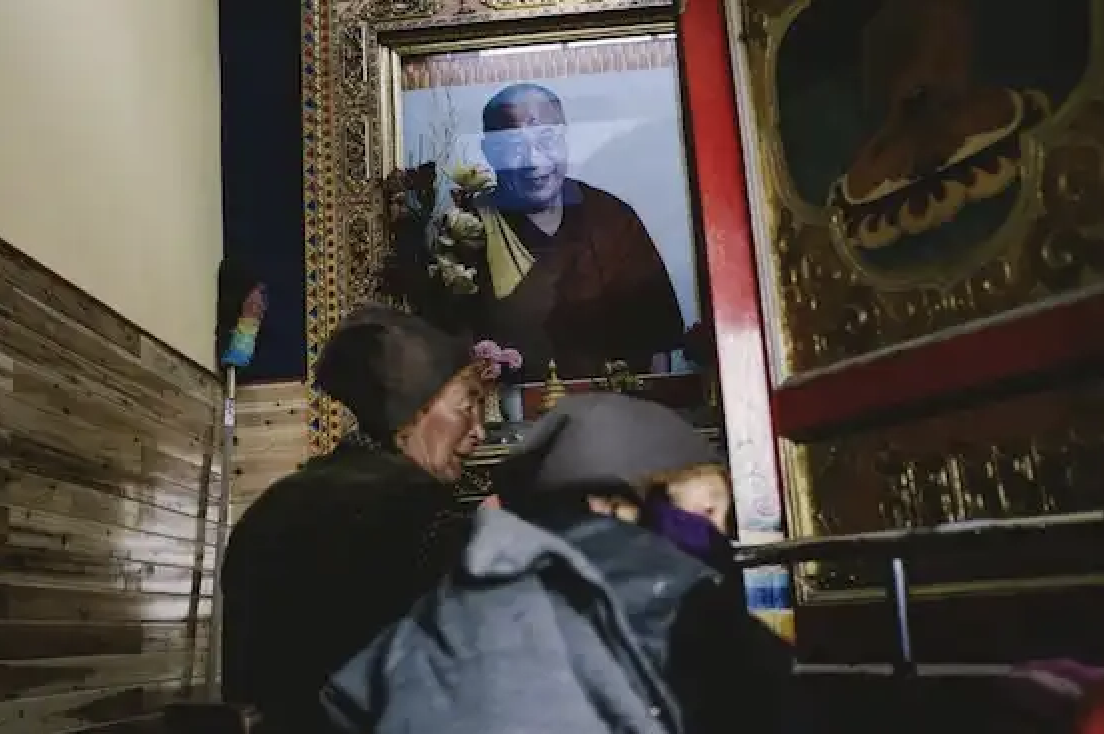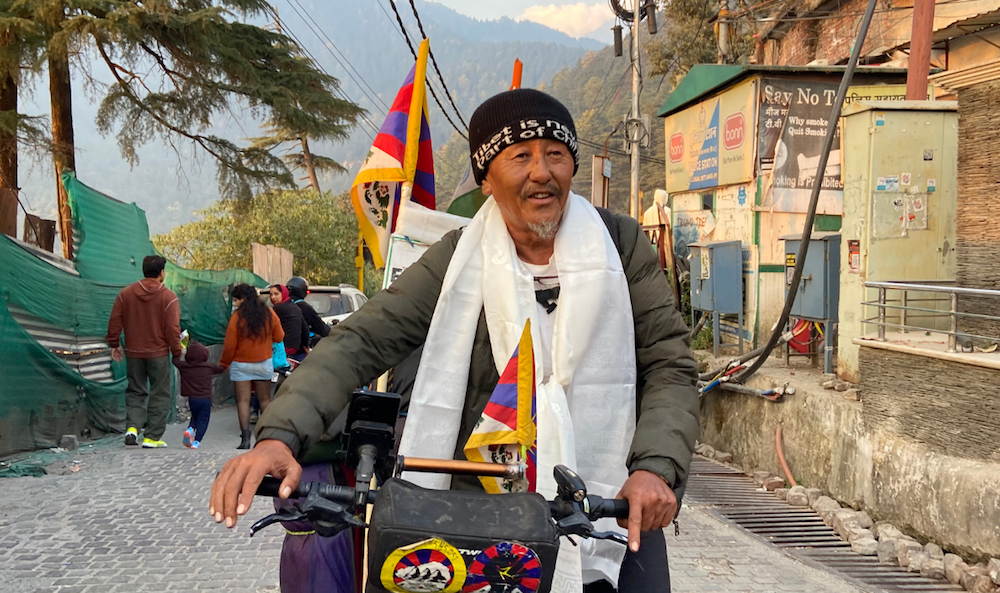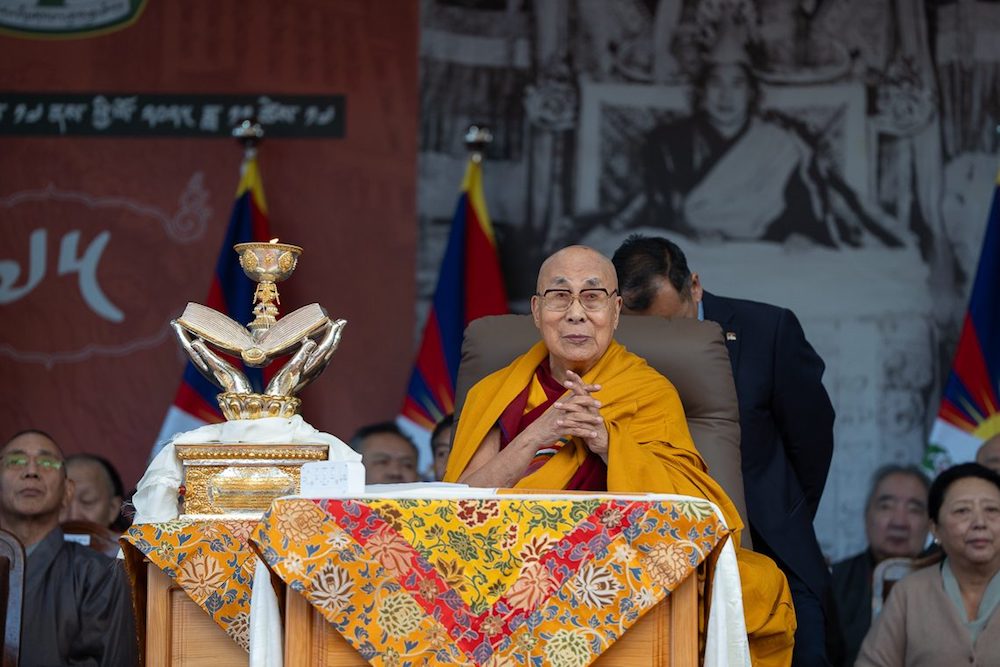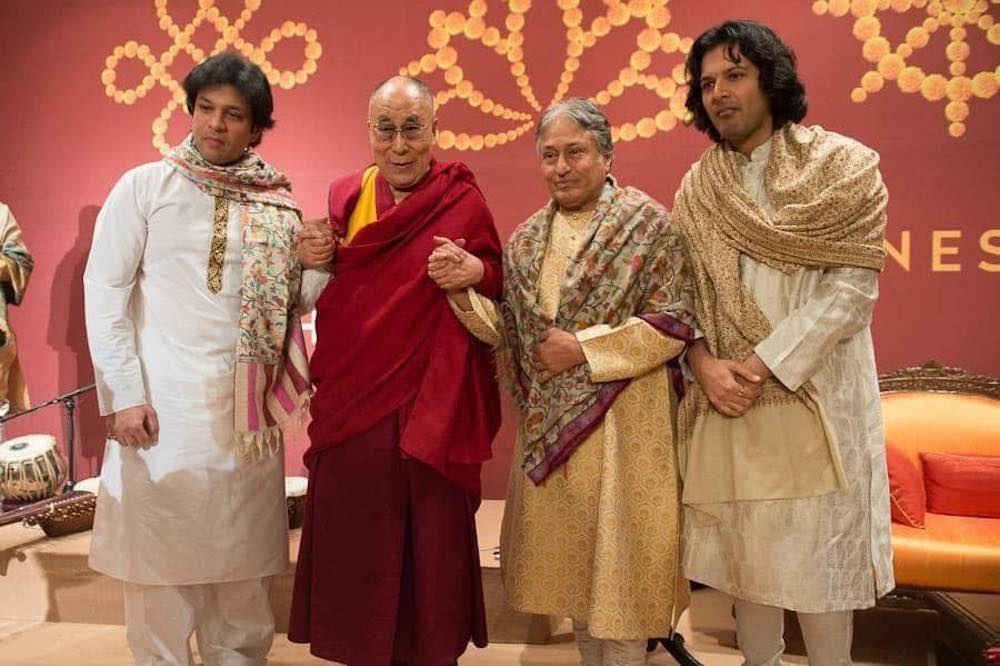Tenzin Nyidon
DHARAMSHALA, Oct. 20: Chinese authorities have reportedly conducted widespread searches at religious institutions and Tibetan households in Amdo, eastern Tibet, forcibly confiscating photographs of His Holiness the Dalai Lama, according to Tibet Times, a Dharamshala-based Tibetan-language media outlet.
Beginning October 16, three Tibetan officials, claiming to be acting under directives from the Chinese government and county authorities, carried out raids at Tashi Khyil Monastery in Labrang and nearby villages including, Thangnag, Ngonchak, Ledruk, Sangkhok, and Marteng. The officials seized approximately four large bags filled with framed photos from monastic quarters and private homes.
“The Chinese government, starting from Thursday of last week, not only confiscated photos from monasteries and homes but also conducted intensive searches across Marteng alone, filling three large bags and continuing to fill a fourth,” a source told Tibet Times. The same source noted that all three inspectors were Tibetan officials, who in some cases even praised families that had preemptively hidden the photos, calling them “good examples.”
While the searches were described as forceful, Tibet Times reported that between October 16 and 19, no known cases of physical assault, arrest, or forced detention occurred during the raids. However, many Tibetans, caught off guard by sudden inspections, were reportedly frightened and felt compelled to surrender the photographs of the exiled spiritual leader. Since October 19, the outlet has been unable to re-establish contact with local sources, and thus the current situation remains unclear.
The confiscation of the Dalai Lama’s photos is part of a broader and long-standing policy by the Chinese government to suppress reverence for the Tibetan spiritual leader. In previous instances, Tibetans have faced severe punishment for similar acts of devotion. On March 17, 2021, authorities in Zawonpo village, Sershul County of Kardze, ordered every household to remove portraits of the Dalai Lama and replace them with images of Chinese leaders. Residents were also compelled to sign a five-point pledge vowing not to possess, distribute, or display “prohibited” portraits of the Dalai Lama, nor to post his images or related content online. Those found in violation were warned that all state welfare subsidies and assistance would be revoked.
Such actions form part of a wider campaign to criminalize reverence for the Dalai Lama under the guise of “maintaining political stability” and “fighting separatism.” In many cases, Tibetans found keeping or displaying his photographs have been charged under vague, state-sanctioned offenses such as “inciting separatism” or “endangering national security,” resulting in imprisonment and other forms of repression.










